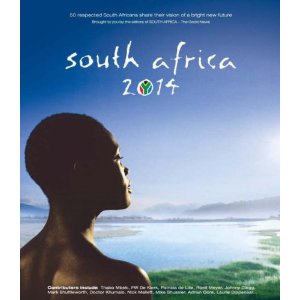28 August 2011
Just back from our Cape holiday in South Africa. The first few days were spent in Swellendam, with visits to the dams (where poor Dusk, now 15 years old, ripped her back claw and needed rushing to the vet) and Barrydale (for the family’s traditional Sunday lunch at the Country Pumpkin). Then we went to Hermanus, where we spotted a single whale and Veneta & Indira swam in the icy water at Grotto Bay, before we headed to Bertie & Magda’s house in Kraaifontein, where we spent two nights.
The next day, I met with Guy Lundy while the girls went to the aquarium at the Waterfront. As it turned out, we had a bird’s eye view of a municipal strikers’ protest down Hertzog Boulevard, during which some of their members callously looted nearby hawkers’ stands. I then picked up Marie Steyn (now 82 and still sweet as ever) and we joined I & V for lunch at the Waterfront. After Marie confessed that she’d never had a ‘sparkler’ at the Spur restaurant, I told the manager that it was her birthday (even though it wasn’t) and she duly received a sparkler in her ice cream desert, complete with a round of happy birthday sung by the waiters.
After dropping off Marie, in the afternoon we headed to Kirstenbosch to meet with Gordon Oliver. There was a stunning exhibition in the Gardens called ‘Untamed’, combining Dylan Lewis’ sculptures, Ian McCallum’s poetry, Enrico Daffonchio’s architecure and David Davison’s conceptual design. In the evening, we had dinner with Karen Weinberg, who is almost fully recovered from the brain virus which wiped out her speech capacity some 18 months ago.
On our second day in Cape Town, we went up Signal Hill and Table Mountain (the weather was windy but clear). We had hoped to take a ferry out to Robben Island, but it was booked up a day in advance. Back in Swellendam, we did excursions to Montagu hot springs, the Duiwelsbos waterfall and Sulina’s Faery Sanctuary, before heading to Oudtshoorn for a visit to the Cango Caves, Cango Ostrich Farm and a Wildlife Sanctuary. I got to ride one ostrich (for about 10 metres) and to ‘kiss’ another (allowing it to peck a pellet from between my lips). The next day we went all the way to Seaview via Mossell Bay, Knysna and Plettenberg Bay (where we swam). A day later, we heard there had been a shark attack at Plett, so I guess we were lucky.
A visit to the Elephant Sanctuary outside Knysna gave us all a chance to feed and touch some tame (but free range) elephants, while Lion Park in Seaview gave Indira & Veneta the chance to handle some 6 week old lion cubs, as well as to spot some giraffe and hartebees. When we finally made it to Addo Elephant Park, the weather was cold, with light showers, so not ideal for game viewing, but we managed to see some kudu and elephant fairly close up.
On our final day, we managed to get the Robben Island ferry and to visit the prison. The prisoner stories, displayed in some of the cells, were most interesting, so it was frustrating not to have much time to look at these (having spent excessively long on the bus driving to less interesting sites around the island). Nevertheless, I was inspired to buy Ahmed Kathrada’s Memoirs, so that should give similar (and much more detailed) insights.
Overall, it was a good holiday and wonderful to spend a bit of time with my parents and see the great progress that has been made on the property. The garden is looking very established and the lodge is three-quarters complete. It was an ideal time of year to visit, with all the early spring flowers and green cultivated fields. The weather was cool most of the time, with some rain, but we had some great sunny days too.
My impressions from talking to friends and family is that poor political leadership is a constant frustration, exacerbated by waves of labour strike action (the media now refers to a ‘strike season’ every year). Indira was clearly shocked by conditions in the squatter camps and townships, as well as the pervasive division of labour along racial lines (virtually all blue-colour jobs are still done by black people). However, I saw positive signs as well, such as solar panels on the roofs of thousands of low cost houses, well maintained roads and other infrastructure and a healthy climate of political debate.
The overwhelming social challenges did make me wonder more deeply about whether I am doing enough; whether my vision is too tame and my actions too pedestrian. I also felt more nostalgia on this trip than previously, so maybe something is shifting in my attitude to both my work and South Africa. Now that I am back in London, there is not much time for reflection, as I head off on my Singapore-Philippines-Vietnam trip in a few days. However, sooner or later, I feel I will need to make a big shift in my work. I sense it is time for another bold career move.









